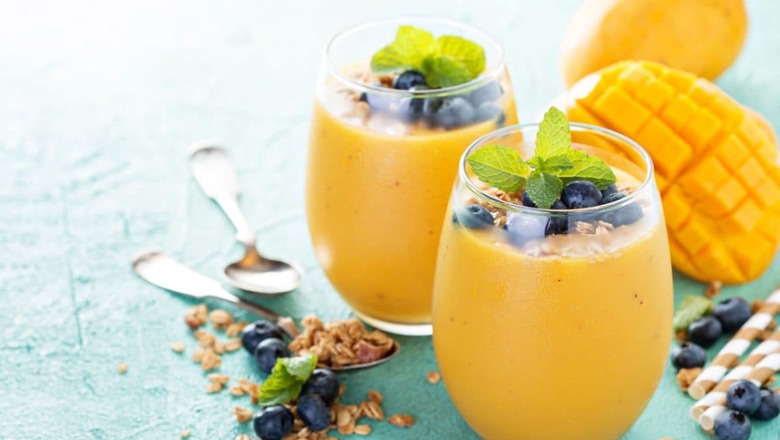
197
views
views
Mangoes are a rich source of several nutrients, including Vitamin A, Vitamin C, Vitamin K, potassium, beta-carotene, and magnesium
Mangoes, a seasonal fruit mostly available during summer, contain high amounts of glucose and fructose, which can cause concern for individuals with diabetes due to the potential for a blood glucose spike. However, mangoes are also a rich source of several essential nutrients, including Vitamin A, Vitamin C, Vitamin K, potassium, beta-carotene, and magnesium, which play vital roles in many bodily functions. So, how can we consume mangoes without causing a significant increase in blood glucose levels?
Anupama Menon, nutritionist, shares ways to eat mangoes without any guilt
- Eat the fruit, never juice it. Juicing a fruit will remove/ breakdown the fibre present in
- Have the fruit as a salad with some seeds/ nuts to reduce the glucose The fibre and fats present in the nuts/ seeds will reduce the glycemic index of the salad.
- Do not consume mangoes with/ before/ after a major meal as it can add on to the glucose load and cause a spike.
- Control the portion size you consume. Do not exceed more than 2 slices per day.
- Make sure to take mangoes only once or twice a week, not everyday
- Mangoes can be taken as a smoothie with yogurt, fruits and peanut butter. This will help in keeping insulin spikes under control and provides a good amount of protein. Hence, can be used as a breakfast option once or twice a week.
Read all the Latest Lifestyle News here




















Comments
0 comment